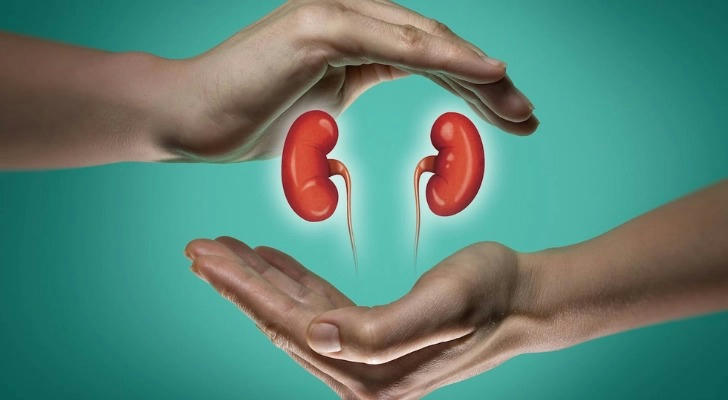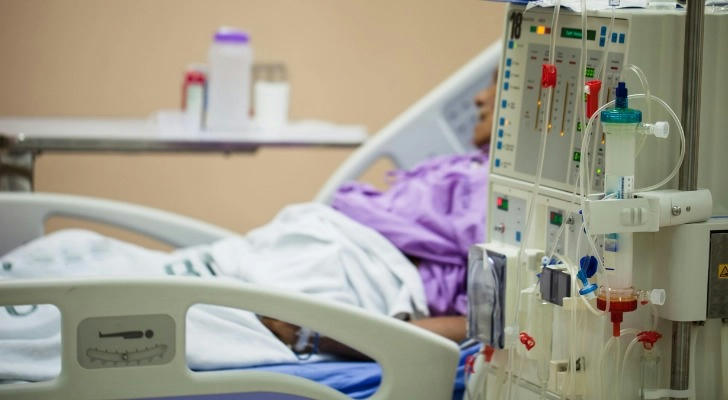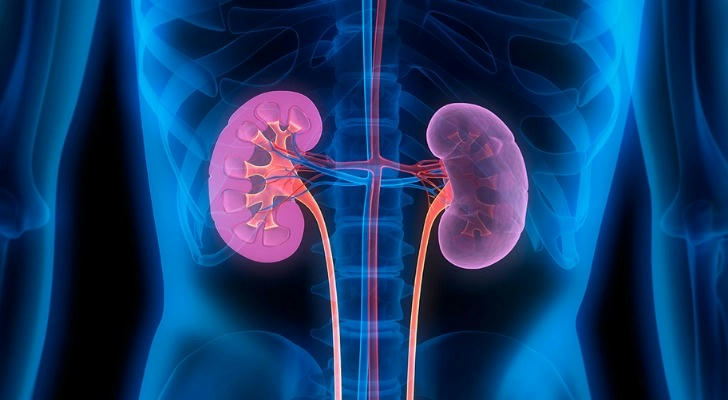Navigating Kidney Failure with Insights into Prevention, Treatment, and Support

Kidney failure, also known as renal failure, is a serious condition where the kidneys lose their ability to function properly. This guide provides a detailed overview of kidney failure, including its causes, treatment options, prevention measures, and real-life success stories, aiming to help individuals make informed decisions about their health.
What is Kidney Failure?
Kidney failure refers to the gradual or sudden loss of kidney function, impairing the kidneys' ability to filter waste products and excess fluids from the blood. This condition can have profound effects on overall health and well-being, impacting multiple body systems.
Causes of Kidney Failure
Kidney failure can arise from a variety of factors:
•Chronic Conditions: Diseases such as diabetes and high blood pressure can damage the kidneys over time, leading to chronic kidney disease (CKD) and eventual kidney failure.
•Acute Conditions: Acute kidney injury (AKI) can result from severe dehydration, infections, or the use of certain medications, leading to a sudden decline in kidney function.
•Genetic Factors: Genetic disorders, such as polycystic kidney disease, can impair kidney function.
•Obstructions: Blockages in the urinary tract, like kidney stones or tumors, can hinder kidney function.
•Autoimmune Disorders: Conditions such as lupus can affect the kidneys' ability to function properly.
Prevention Measures for Kidney Failure
Preventing kidney failure involves controlling risk factors and maintaining a healthy lifestyle:
•Manage Chronic Diseases: Actively manage conditions like diabetes and high blood pressure through regular check-ups and medication to keep blood sugar and blood pressure levels in check.
•Maintain a Healthy Diet: Reduce salt and high-protein food intake, while increasing the consumption of fruits, vegetables, and whole grains to ease the burden on the kidneys.
•Exercise Regularly: Engage in moderate physical activity to help control weight and blood sugar levels, thereby reducing stress on the kidneys.
•Get Regular Check-ups: Regular kidney function tests can help detect potential issues early and allow for timely intervention.
•Avoid Overuse of Medications: Be cautious with over-the-counter medications, especially pain relievers and antibiotics, to minimize kidney damage.
•Stay Hydrated: Drink adequate amounts of water to help the kidneys eliminate waste, but avoid excessive fluid intake.
Treatment Options for Kidney Failure

Effective treatment for kidney failure depends on the severity of the condition and its underlying cause:
•Medications: Various medications can help manage symptoms and complications of kidney failure, such as controlling blood pressure, managing blood sugar levels, and reducing fluid buildup.
•Dialysis: For individuals with severe kidney failure, dialysis is a crucial treatment that performs the filtering functions of the kidneys. There are two main types:
•Hemodialysis: Blood is filtered through a machine outside the body.
•Peritoneal Dialysis: A special fluid is introduced into the abdominal cavity to remove waste products.
•Kidney Transplant: In cases where dialysis is no longer effective, a kidney transplant may be considered. This involves replacing the diseased kidney with a healthy donor kidney.
•Lifestyle Modifications: Adopting a kidney-friendly diet, maintaining a healthy weight, and avoiding substances that strain the kidneys can be beneficial.
•Supportive Therapies: Managing associated conditions and complications, such as anemia or bone mineral disorders, is essential for overall health.
Cost of Treatment
Treatment costs can vary significantly:
•Medications: Generally range from $20 to $300 per month, depending on the type and dosage.
•Dialysis: Hemodialysis typically costs between $500 and $4,000 per session, while peritoneal dialysis can cost around $2,000 to $3,000 per month.
•Kidney Transplant: The total cost can range from $30,000 to $100,000, including surgery, hospital stay, and post-transplant care.
•Lifestyle Changes: Costs depend on dietary needs and other health-related adjustments.
Effective Solutions and Practical Advice
1.Consult a Healthcare Provider: A thorough examination by a nephrologist can determine the cause of kidney failure and help in selecting the most suitable treatment plan.
2.Explore Various Treatments: Evaluate different treatment options to find the most effective approach for managing kidney failure.
3.Understand Costs and Insurance: Clarify financial aspects and check if insurance covers any treatments or medications.
4.Adopt Healthy Lifestyle Changes: Implementing dietary adjustments and managing health conditions can greatly impact kidney health.
5.Seek Support: Emotional and psychological support can be crucial in managing the stress and challenges associated with kidney failure.
Success Stories: How Treatments Have Made a Difference
Linda’s Dialysis Success: Linda, a 58-year-old teacher, effectively managed her chronic kidney disease with regular dialysis. The treatment allowed her to maintain a good quality of life while awaiting a kidney transplant.
Tom’s Transplant Triumph: Tom, a 45-year-old engineer, received a kidney transplant that transformed his life. Post-surgery, he regained his energy and returned to his active lifestyle, demonstrating the life-changing potential of a successful transplant.
Sarah’s Lifestyle Transformation: Sarah, a 62-year-old retired nurse, made significant improvements in her kidney health through dietary changes and weight management, showing how lifestyle modifications can positively impact kidney function.
Benefits of Addressing Kidney Failure
Improved Quality of Life: Effective management of kidney failure can lead to better overall health and well-being.
Wide Range of Treatments: With various treatment options available, individuals can find one that best suits their specific needs.
Overall Health Improvement: Addressing kidney failure and associated conditions can enhance general health and prevent further complications.
Challenges and Considerations
Cost Factors: Some treatments can be expensive, and insurance coverage may vary.
Potential Side Effects: Medications and treatments may have side effects that need to be managed.
Emotional and Psychological Impact: Dealing with kidney failure and its treatments can be emotionally challenging.
Future Directions for Research
To enhance understanding and treatment of kidney failure, future research should explore:
Personalized Treatment Approaches: Investigate how to tailor treatments based on individual health profiles and genetic factors.
Long-Term Efficacy: Assess the long-term effectiveness and safety of various treatments to understand their sustained benefits and risks.
Emerging Therapies: Evaluate new treatments, such as regenerative medicine and innovative drugs, for their potential to better address kidney failure.
Combination Therapies: Explore how combining treatments, such as dialysis with lifestyle changes, can improve outcomes.
Economic Evaluations: Analyze the cost-effectiveness of treatments, considering both direct costs and the broader impact on quality of life.
Conclusion

Kidney failure is a serious but manageable condition with numerous treatment options available. By understanding its causes, exploring various treatment methods, and adopting preventive measures, individuals can effectively address kidney failure and enhance their quality of life. Real-life success stories highlight the positive impact of effective treatments, and ongoing research continues to refine these approaches, offering hope for even more effective solutions in the future.
